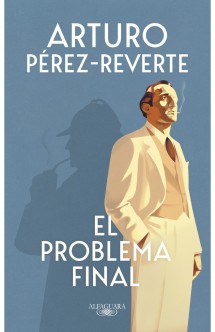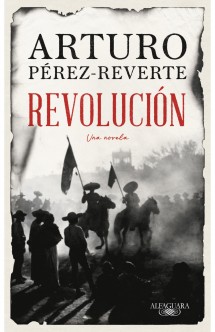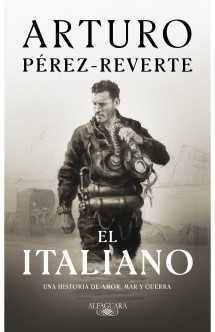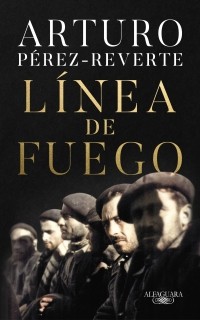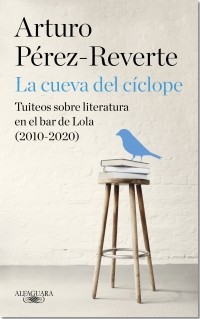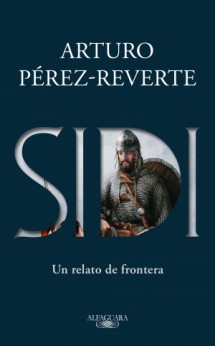Prensa > Críticas en otras lenguas
Críticas en otras lenguas
Críticas publicadas en otros idiomas.
The Pen And the Sword
DONALD MORRISON | Time Europe Magazine - 29/5/2006
Spain's swashbuckling fictional hero, Captain Alatriste, is fighting his way to global glory.
In the 17th century reign of Spain's King Philip IV, a once-mighty empire was drowning in corruption, intrigue and lawlessness, while the Inquisition sowed terror throughout the land. If ever there was a man of honor and integrity who could bring justice to the wretched of this world ... it certainly wasn't Diego Alatriste y Tenorio. As an infantry captain, he had fought well against Spain's enemies. But now he was hacking out a squalid living in Madrid as a sword-for-hire.
Nevertheless, Captain Alatriste is poised to become fiction's hottest international swashbuckler since the Scarlet Pimpernel. Already a cult hero in Spain, Alatriste is the star of five novels by former journalist Arturo Pérez-Reverte that have sold more than 4 million copies in 50 countries since the first volume appeared a decade ago. That book, Captain Alatriste, was finally published in English last year, and the second, Purity of Blood, came out in January. The captain has his own website, comic strip, board games and, in Madrid, guided tours of his fictional haunts. Alatriste, a feature film based largely on the first book and starring Viggo Mortensen (The Lord of the Rings), will open in Europe and the U.S. later this year. With a $28 million budget, it's the most expensive Spanish-language film ever made in Spain.
The protagonist of this franchise is perhaps the least dashing, most enigmatic hero ever to rattle a rapier. Alatriste speaks little, drinks alone, dresses badly and blunders into traps set by more cunning adversaries. But he is fearless, deadly with a blade and, beneath his armored persona, stubbornly loyal. Those qualities animate the newly translated Purity of Blood. Alatriste is hired to help an aging father free his daughter, a nun, from the clutches of a well-connected priest who is using the convent as his private seraglio. The old man and his family have a secret: as Christian descendants of a converted Jew in anti-Semitic times, they lack "purity of blood" and soon become targets of the Inquisition. Alatriste too comes under suspicion, and the blood, pure and otherwise, begins to flow.
Like the other Alatriste books, Purity of Blood bristles with adventure and swordplay, but in this one the tone is darker, more political. Real-life figures stir the plot, including the poet Francisco de Quevedo and the Conde de Olivares, the powerful Philip IV Minister painted by Velázquez. The Inquisition, in all its appalling horror, is brought to life, as is Spain's wrenching decline. Laments Iñigo, Alatriste's young sidekick, who tells the story: "It seemed that to be lucid and Spanish would forever be coupled with great bitterness and little hope."
The new film is an ambitious attempt to capture Pérez-Reverte's mix of action, historical accuracy and literary ambition. Though the author has adapted several of his 14 other novels for the screen, this time he stayed away. "Experience tells me that the writer usually is an uncomfortable presence at the filming," Pérez-Reverte says from his home near Madrid. (Spanish screenwriter Augustín Díaz Yanes wrote the script and directed it.) "The movie is excellent," says Pérez-Reverte. "It is cruel and hard and at the same time fascinating. I am very satisfied."
Spain's Hollywood standard-bearer Antonio Banderas originally wanted to direct the film and play Alatriste, but talks with the movie's producers fell through. Mortensen was a fortunate catch. A New Yorker raised in Latin America, he is fluent in Spanish and, as he showed in The Lord of the Rings, can handle both a sword and a steed. Says Pérez-Reverte: "Viggo is so good, so in his role, that now it's difficult to imagine Captain Alatriste with another face."
Except perhaps his own. "Alatriste is not me," insists the former war correspondent, who spent two decades covering conflicts in Africa and the Balkans for Spanish media. He wrote his first novel when he was 35 and says of his hero: "He looks at the world in the way I do - a hostile and dangerous territory where courage, valor, loyalty, friendship are defensive weapons." Pérez-Reverte sees a connection between Alatriste's Spain and today's prosperous, conflicted country. "Spain of the 16th and 17th century, full of darkness and also culture and beauty, is the explanation of many things now," he says. "To understand all that is an interesting exercise. And useful."
Pérez-Reverte's latest book, El Pintor de Batallas (The Painter of Battles), a historical tale in the mode of his novels The Dumas Club and The Fencing Master, was published in Spain last February. He is soon to start work on the sixth Alatriste installment, but for now he would rather talk about other people's books. "I was brought up with the Greek and Latin classics, with the 16th and 17th century Spanish classics and the great European novelists of the 19th century. Of the 20th [century], I'm interested in Scott Fitzgerald, Thomas Mann, Stefan Zweig, Joseph Conrad and Thomas Pynchon. The rest I can do without, including my own books." The rest of us, however, are likely to be hooked on Alatriste's adventures as long as the writer keeps turning them out.
